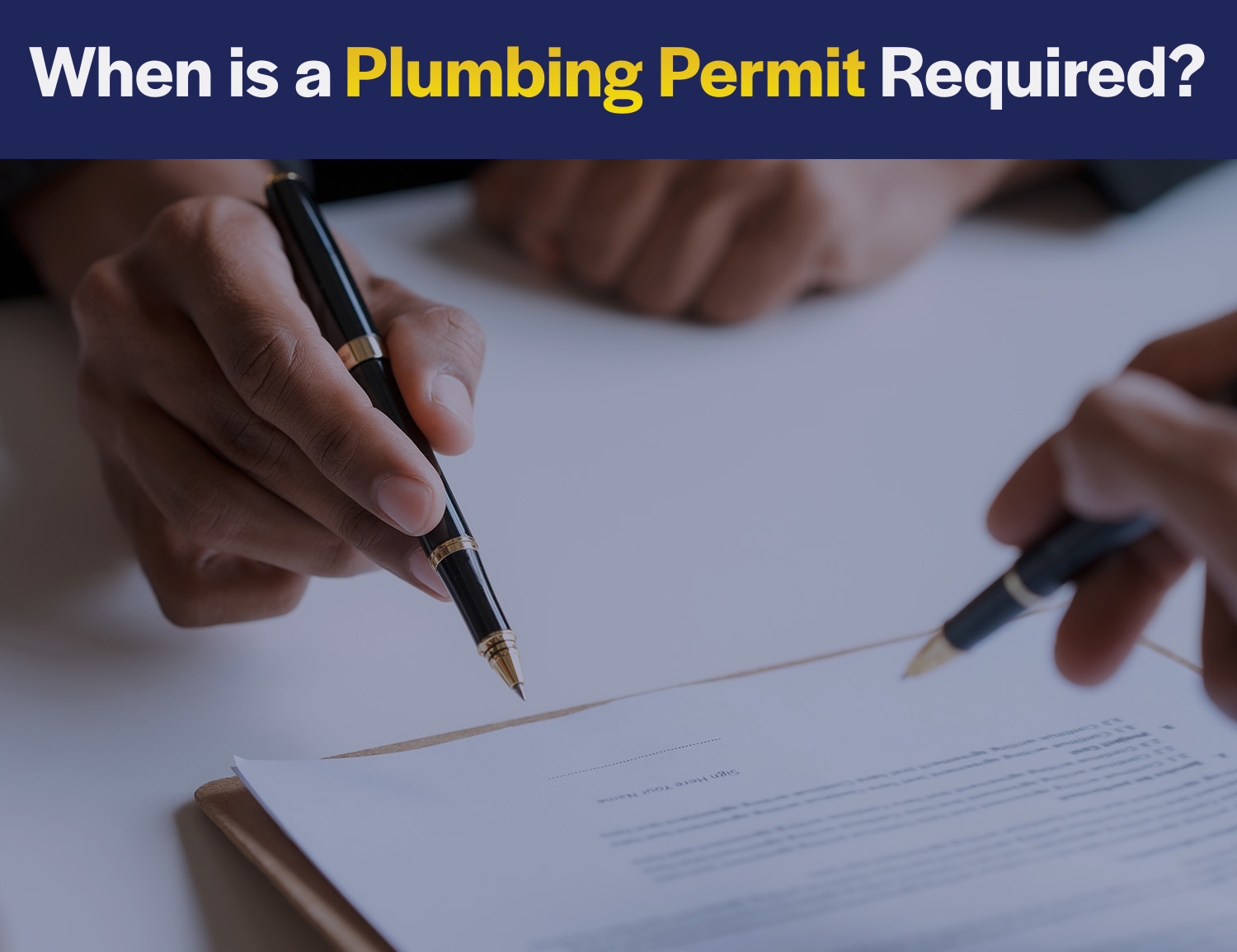
Plumbing is an essential aspect of any building, ensuring an efficient supply of water and the proper disposal of waste. As with any construction or renovation work, there are rules and regulations in place to ensure the safety and compliance of plumbing systems. One such requirement is obtaining a plumbing permit when taking on certain plumbing jobs.
A plumbing permit is an official document issued by local authorities that grants permission to perform specific plumbing work on a property. These permits are crucial to maintaining building standards, protecting public health, and safeguarding the environment. They help ensure that plumbing installations adhere to relevant building codes and safety standards.
When should I obtain a Plumbing Permit?
The requirement for a plumbing permit can vary based on the location, type of work, and scope of the project. In general, plumbing permits are required for the following situations:
New Construction. Whenever a new building is being constructed, whether it’s residential or commercial, a plumbing permit is mandatory. This ensures that the plumbing system is properly designed and installed from the ground up, meeting all safety codes and regulations.
Remodeling and Renovations. When remodeling or renovating a property, especially if it involves alterations to the plumbing system, a permit is typically required. This includes projects like adding new fixtures, relocating pipes, or modifying the existing plumbing layout.
Water Heater Installation. Replacing or installing a new water heater often requires a plumbing permit because water heaters connect to the plumbing system and can be a potential source of serious hazards if not installed correctly.
Sewer Line Repair or Replacement. Any work related to repairing, replacing, or installing sewer lines requires a permit. These projects are crucial for maintaining proper sanitation and preventing environmental contamination.
Gas Line Installation and Repairs. If you plan to install or repair gas lines, a plumbing permit is usually required. Gas-related work is hazardous and requires strict adherence to safety protocols.
Adding Plumbing Fixtures. Adding new plumbing fixtures, such as sinks, toilets, bathtubs, or showers, typically requires a permit. These fixtures must be installed correctly to prevent leaks and ensure proper functioning.
Outdoor Plumbing Projects. Some jurisdictions may require permits for outdoor plumbing projects, like installing irrigation systems or outdoor sinks.
Why should I obtain a Plumbing Permit?
Obtaining a plumbing permit is more than just a bureaucratic requirement – it serves several essential purposes.
- It ensures safety.
Plumbing systems that adhere to building codes are less likely to cause accidents, such as water leaks, gas leaks, or structural damage. Permits involve inspections at various stages of the project, helping to identify and rectify potential issues before they become hazardous.
- Legal Compliance.
Failing to obtain a required plumbing permit can lead to severe consequences, including fines, stop-work orders, and legal liabilities. It could also complicate the process of selling the property in the future.
- Insurance Coverage. Homeowners’ insurance policies may not cover damages resulting from work done without the necessary permits. A valid permit provides added protection and ensures proper insurance coverage.
- Quality Assurance. Permits often require that licensed plumbers perform the work. This ensures that only qualified professionals, knowledgeable about the local codes and regulations, handle the plumbing installations.
How to Obtain a Plumbing Permit?
The process of obtaining a plumbing permit may vary depending on the city or county laws. A licensed, professional plumber will be qualified to help you handle all the necessary paperwork and permits. This includes providing detailed information about the plumbing project, such as the scope of work, location, materials, and showing any relevant drawings or plans. The plumbing permit application can be filled out either online or at the local building department for a fee. For more complex projects, the building department may review the plumbing plans to ensure they comply with local codes and regulations.
Once the application is approved, the plumbing permit will be issued and you will be required to display the permit prominently on your property or job site, as it may need to be inspected during the course of the work. Throughout the project, inspections may be required at specific stages, such as after roughing in the plumbing or before closing up walls. These inspections help ensure the work is done correctly and safely.
What happens if I don’t obtain a Plumbing Permit?
Many homeowners and contractors may be tempted to skip the permit process to save time and money. However, doing so can lead to serious repercussions. Operating without the required permits is illegal and can result in fines and penalties. In some cases, legal action may be taken against the property owner or contractor. Unpermitted plumbing work will likely not undergo inspections, increasing the risk of hidden issues that could lead to accidents or property damage. If damages occur due to unpermitted work, insurance companies may refuse coverage, leaving the property owner solely responsible for all repair costs. Additionally, when selling a property, potential buyers may inquire about past permits and work done on the premises. Unpermitted work can complicate the selling process and reduce your property value.
Here at VIP Sewer and Drain Services, we’re licensed, insured, and qualified with over 25 years of experience, to help you with any plumbing job – big or small. Leave the permitting requirements to us and rest assured that your home and plumbing system are in capable hands!


